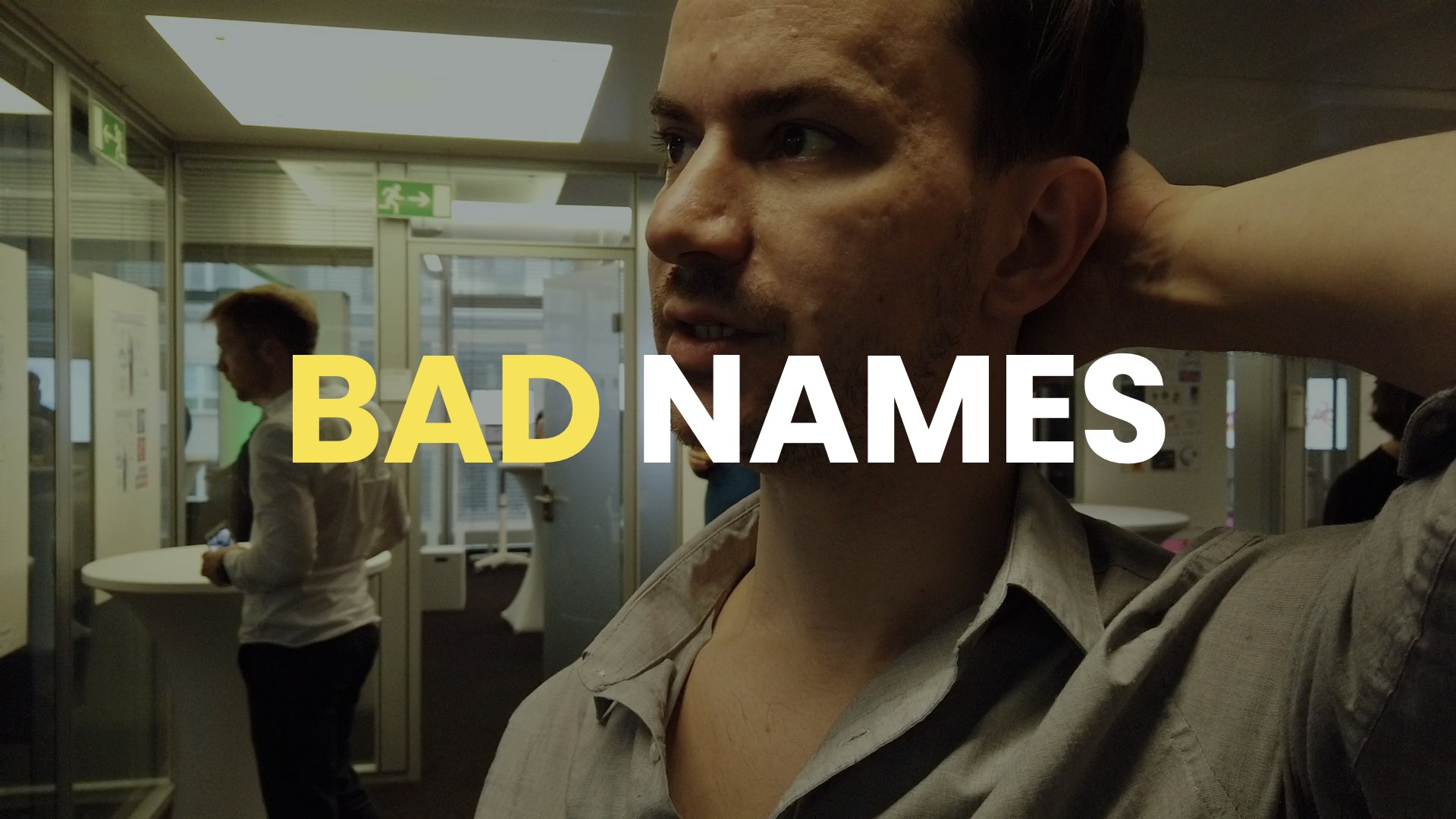Brand Name Pitfalls That You Should Avoid

In our last article of the Business Naming series, you learned that good company names will make you SMILE – and which successful brands apply these criterias. Now, just applying the five SMILE-criterias to a name is not enough: A good name does not only make you smile, it will also not be a head-SCRATCHer.
So, in this article, you will learn what makes a bad company name – so you can avoid these pitfalls with your own brand. There are 7 deal-breaking points to be aware of, following the handy acronym SCRATCH:
Spelling-challenged: A name isn’t spelled how it sounds like. in the 2000s, a lot of Tech startups did that to secure domains and look unique. The issue: Just from hearing the name, you couldn’t replicate and spell it correctly, which causes trouble when remembering the the brand. In name brainstorming meetings, this is usually the first idea: “Let’s take a word and spell it differently” – please don’t do that. Famous brands that you know (and probably misspelled at first) include Flickr, Lyft or Houzz. Pro tipp: Ask Siri if she knows your company and see how she spells it.
Copycat – Remember your last beach vacation? The sun, the smell of fresh coconuts and the beach salesman offering the finest garments from Calvin Kline, Guggi, Dolce & Banana. If your brand name is too close to your competition’s, you will end up not only getting sued by them, but perceived as unoriginal and lame. That’s also true if you think of opening a Burger Queen’s or a Jamie and the Juice.
Restrictive – You know who has a hard time selling anything else but seafood? Bubba Gump Shrimp Company. If your name is very precise on only one aspect of your business, it will lock you in and limit future growth.
Annoying – Your brand name should not be indecipherable, forced or cutesy – any kind of leaving out letters, play on words or puns will rather hurt your brand perception than help it.
Tame – Do you know what “Simple” does? Or “Life”? Or “Tune”? All of these are real brand names, they are short, positive, and totally tame. Avoid names that don’t dare or are not specific enough
Curse of Knowledge – When you are using subculture references or language for your skate shop or surf school, your audience might really enjoy the insider joke. This curse of knowledge however excludes everyone else, and your brand from growing outside the core demographic.
Hard-to-pronounce – Again, your name doesn’t need to have any artsy qualities. While something like Cartier or Hermès might work in the luxury sector, their pronunciation does exclude the rest of us. If your name is not obvious or you rely on accents or punctuation, try to find a simpler name.
For good brand names, try to avoid any of these head scratchers. To audit your own brand name, try out the Human Deluxe SMILE & SCRATCH Matrix on Google Sheets – it’s free, of course!
